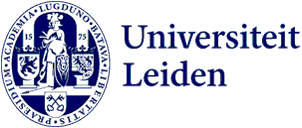
Four VIS grants for Humanities projects
The new VIS grant has been awarded to four projects from the Faculty of Humanities. In a Virtual International Cooperation Project (VIS), Dutch and foreign students work together remotely on a project that links local issues to an international perspective.
‘A Critical Engagement with Advancing the SDGs’ - Madi Ditmars
‘One of the programmes I coordinate, the minor in African Dynamics, includes a Small Private Online Course (SPOC) and is offered as Collaborative Online International Learning, which is an online exchange course. SPOC has helped to make me more aware of the huge value and potential in offering virtual exchanges in higher education, but also of the possible challenges and pitfalls. This grant will give me more time for such things as upgrading and improving the existing online course. The grant also includes a four-week curriculum called Designing A Collaborative Learner-Led Intercultural Online Exchange Process. I’m particularly looking forward to attending this curriculum with like-minded peers and being able to further develop my skills in designing, developing and facilitating even more effective virtual exchange courses.’
‘Blue Acceleration, Toxic Degradation, and Environmental Democracy in Delta Regions: Een transatlantische benadering’ - Dario Fazzi
‘The students involved in this project will investigate how the “Great Acceleration”, the sharp increase in human activity after 1945 and its impact on the planet, has affected different delta communities in the Atlantic Ocean. The students will work with fellow students from universities in the United States to investigate the relationship between environmental pollution and socio-ecological degradation of various delta regions. They’ll pay particular attention to the policy responses of local and national governments to the concerns of local communities; and to the creation of local networks and the development of different kinds of local resilience. The overall aim is to test the extent to which “blue acceleration” has promoted or hindered the emergence of forms of environmental democracy.’
‘Digital Greek and Latin Epigraphy in the International Classroom’ - Rens Tacoma
‘This project aims to make students think about the new possibilities Digital Humanities offers for studying ancient inscriptions from the Graeco-Roman world in an international context. Thanks to the recent availability of epigraphic databases, not only has the scale of research increased, but many new research questions are also emerging. In the past, the individual study of separate inscriptions formed the basis of epigraphy, while nowadays international collaborations are used to solve larger questions. By creating this kind of research situation, the International Classroom tries to make students aware of both the opportunities and the challenges of such research. I’m most looking forward to collaborating with Exeter University in England, where people work with similar research interests to ours here in Leiden. I want to develop a master’s course in Epigraphy that’ll be offered in the regular study programmes in both Exeter and Leiden.’
‘Multilingual Europe: Life on a linguistically diverse continent’ - Hannah de Mulder
‘In this project students are going to investigate the theme of multilingualism from various local perspectives in order to paint a picture of the multilingual reality in Europe. There’ll be a platform on which students can share clips on an interactive map of Europe that provide insight into all kinds of issues concerning multilingualism. Students in the Netherlands and Spain will carry out literature research and interviews to highlight a specific aspect of multilingualism that’s relevant from that local context. They’ll then discuss each other’s contributions and analyse the similarities and differences they encounter in their research. We want to expand and deepen the students’ knowledge of multilingualism so that they have a better idea of the role it plays in the daily lives of people in Europe. We’re very curious to see how the students will react to the international cooperation. As lecturers involved in the project, we’re also looking forward to collaborating with our European colleagues. We can offer each other a glimpse into our education systems: what we do similarly and what we do differently. We’re looking forward to putting this cooperation on a more solid footing.’
